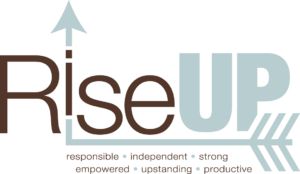During dismissal the other day, I noticed one of our students decked out in his new work uniform. His shirt was tucked in, and he proudly displayed his name badge on that same shirt. Something about it took me back to when I was his age and figuring out what it meant to enter the workforce. I learned a lot of lessons in those early days, some of which have made me a successful adult. In this post I want to share some pointers that might help young people as they take their first jobs.
The first thing to know about when you’re new to the workforce is employer expectations. Employers expect employees to be on time and ready to work. Adopting the mantra of “early is on time, on time is late” is something all new employees should do. If you show up at the very last minute, still needing to put on your apron or organize your things, it is very likely that someone will need to stay late. This can be problematic for employers, as overtime adds to overhead, which companies must manage if they’re going to be successful.
Another thing to know is that uniforms are important and should be worn with pride. There’s no reason to hang your head in shame for putting in an honest day’s work. I remember when I got my first promotion. I became a shift manager at Chick-Fil-A, and at that time, shift managers wore ties. Each of us made sure we knew how to tie a double Windsor knot, which we proudly displayed as we made our way into work. Collecting the new ties also became somewhat of a competition, with each of us wanting to look better than the next by proudly displaying the newest tie from the company catalog. But my point is that no matter where you work, you want to look good while you are on the clock. Keeping your clothes clean and as wrinkle-free as possible shows your employer that you care about maintaining a positive image. This little step will lead to better interactions with customers, which in turn will lead to better days at work.
While I am on the topic of interpersonal interactions, you should be aware that neither customers nor employers want to see young persons on their phone while at work. There is perhaps no nice way to say this, but phones don’t really have a place in the workplace. Whether you are running a register, bagging groceries, or helping your uncle complete a construction project, staying off your phone while working lets your boss know where your priorities are. It also tells customers that you are there to help them.
Another thing that will help as you enter the workforce is the realization that managers are people, and just like all people, they will make mistakes. When they do this, it isn’t your job to point out those mistakes or to complete a performance appraisal of their work. Understanding this will help you have more positive interactions with your co-workers and perform your own job better. Staying focused on what you have been asked to do, rather than focusing on what you think the manager should be doing, will help you be a happier and more productive employee.
A final thing to realize when you start your job is that a company will never pay you what you are worth. Companies pay what the job is worth. This might not be a lot when you are first starting out. However, if you demonstrate that you are dependable by showing up on time, and that you care enough about the company to stay off your phone, it is likely that you will get small raises. Over time, those add up.
By putting in an honest day’s work, you will gain skills that will have a greater benefit to your income as you get older. I can tell you now that the things I learned while working for minimum wage still help me to be successful today. I can also say that I am proud of my days spent scrubbing dishes and doing the dirty jobs that no one else wanted to do. Getting a job is one of the best decisions that I made during my high school years—a decision that hopefully you will make, too.
Matt Raper is the middle school principal at Ivy Academy in Chattanooga, Tenn.

